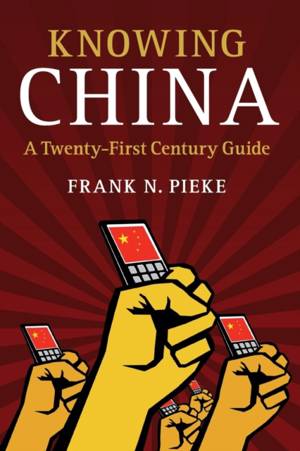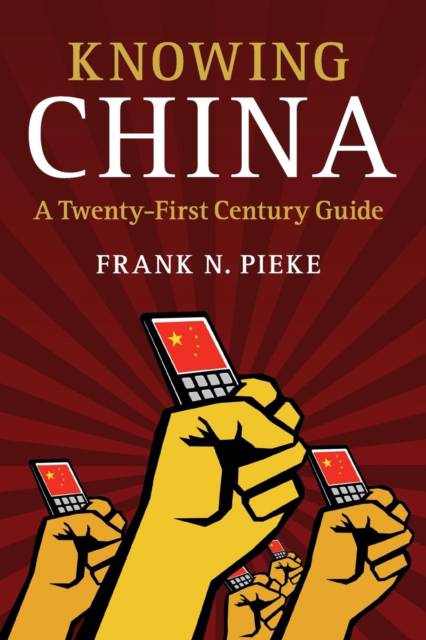
Door een staking bij bpost kan je online bestelling op dit moment iets langer onderweg zijn dan voorzien. Dringend iets nodig? Onze winkels ontvangen jou met open armen!
- Afhalen na 1 uur in een winkel met voorraad
- Gratis thuislevering in België vanaf € 30
- Ruim aanbod met 7 miljoen producten
Door een staking bij bpost kan je online bestelling op dit moment iets langer onderweg zijn dan voorzien. Dringend iets nodig? Onze winkels ontvangen jou met open armen!
- Afhalen na 1 uur in een winkel met voorraad
- Gratis thuislevering in België vanaf € 30
- Ruim aanbod met 7 miljoen producten
Zoeken
Omschrijving
Contemporary China appears both deceptively familiar and inexplicably different. China is a cauldron of forms of entrepreneurship, social organization, ways of life and governance that are at once new and unique, recognizably Chinese and generically modern. In analyzing and interpreting these developments, Frank N. Pieke adopts a China-centric perspective to move beyond western preoccupations, desires, or fears. Each chapter starts with a key question about China, showing that such questions and assumptions are often based on a misunderstanding or misconstruction of what China is today. Pieke explores twenty-first-century China as a unique kind of neo-socialist society, combining features of state socialism, neoliberal governance, capitalism and rapid globalization. Understanding this society not only helps us to know China better, but takes us beyond the old dichotomies of West versus East, developed versus developing, tradition versus modernity, democracy versus dictatorship, and capitalism versus socialism.
Specificaties
Betrokkenen
- Auteur(s):
- Uitgeverij:
Inhoud
- Aantal bladzijden:
- 234
- Taal:
- Engels
Eigenschappen
- Productcode (EAN):
- 9781107587618
- Verschijningsdatum:
- 16/08/2016
- Uitvoering:
- Paperback
- Formaat:
- Trade paperback (VS)
- Afmetingen:
- 153 mm x 231 mm
- Gewicht:
- 335 g

Alleen bij Standaard Boekhandel
+ 77 punten op je klantenkaart van Standaard Boekhandel
Beoordelingen
We publiceren alleen reviews die voldoen aan de voorwaarden voor reviews. Bekijk onze voorwaarden voor reviews.











